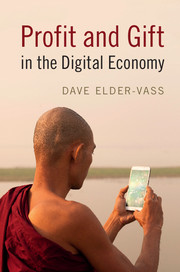1 - Introduction
from Part I - Diverse economies
Published online by Cambridge University Press: 05 July 2016
Summary
Over three billion times a day, someone types a search term into Google and within a few seconds receives a list of search results on their screen (Internet Live Stats, 2014). This service, delivered entirely free to the user, has become a cornerstone of the work and knowledge practices of a substantial portion of humanity. But the Google Search business model – like many others in the digital economy – confounds and undermines some of our best established ways of thinking about the economy. Although Google makes substantial profits by serving up advertisements alongside these search results, the idea that one can run a successful business by giving away a free service to perhaps a quarter of the human race flies in the face of conventional economics. Yet it also confounds Marxist ideas that economic value is essentially a product of labour: both the delivery of search results and the sale of advertising space alongside them are thoroughly automated processes, in which almost all of the processing required is done by computers not people. Nor does it support conventional ideas of the gift economy, which is usually seen as an alternative to the commercial economy, making personal connections on the basis of reciprocal obligations.
The best-established ways of understanding our economy are the neoclassical tradition that dominates mainstream academic economics and the Marxist tradition that dominates critical politics. For both, despite individual dissenters and substantial differences in the details, the contemporary economy is a monolith: a capitalist monolith, characterised more-or-less universally by the production of commodities by businesses for sale at a profit. For the typical neoclassical economist this is to be celebrated as the most efficient way to run an economy – and extended into whatever benighted spaces have resisted it. For the typical Marxist it is to be criticised as alienating and exploitative, and overthrown by taking control of the state and imposing an entirely different, but equally monolithic, form of economy.
The real economy, however, is far more diverse. It is neither overwhelmingly capitalist as most Marxists assume nor overwhelmingly a market economy as most mainstream economists assume. Both traditions tend to ignore vast swathes of the economy that do not fit with their stylised models, but because their models have thoroughly shaped our thinking they have largely succeeded in obscuring these diverse economic forms from view.
- Type
- Chapter
- Information
- Profit and Gift in the Digital Economy , pp. 3 - 21Publisher: Cambridge University PressPrint publication year: 2016



